practice exams:
Pass Amazon Certification Exams at the First Attempt Easily
Real Amazon Exam Questions, Accurate & Verified Answers As Experienced in the Actual Test!
Exam |
Title |
Files |
|---|---|---|
|
1
|
||
|
1
|
||
|
1
|
||
|
1
|
||
|
1
|
||
|
1
|
||
|
1
|
||
|
5
|
||
|
1
|
||
|
1
|
||
|
1
|
||
|
1
|
||
|
1
|
||
|
5
|
||
|
6
|
Hot Amazon Tutorials
See AllAmazon Certification Exam Dumps, Amazon Practice Test Questions
Don't miss out on the opportunity to get certified with the help of this ever-popular ExamLabs platform that provides you with only verified and legit Amazon certification practice test questions and answers in VCE format, training courses, and study guides. So, if you're looking to pass your Amazon certification exams then with ExamLabs practice test questions and exam dumps you can surely pass your exam quickly and easily.
The Cloud Revolution and the Demand for Amazon AWS Skills
For decades, the traditional model of information technology involved businesses purchasing, managing, and maintaining their own physical servers and data centers. This approach required massive upfront capital investment, ongoing maintenance costs, and a significant amount of physical space. It was often inefficient, as companies had to buy enough hardware to handle their peak demand, meaning much of that expensive infrastructure would sit idle during normal operations. The process of scaling up to meet new demand was slow, expensive, and complex, taking weeks or even months to procure and set up new servers.
Cloud computing completely revolutionized this paradigm. Instead of owning their own computing infrastructure, companies can now rent it from a cloud provider. This allows them to access a vast array of services, from simple data storage to powerful machine learning capabilities, on a flexible, pay-as-you-go basis. This shift has democratized access to enterprise-grade technology, allowing startups and small businesses to compete with large corporations. It provides unparalleled agility, scalability, and cost-efficiency, which is why a massive migration to the cloud is underway across every industry.
The Dominance of Amazon Web Services in the Cloud Market
While there are several major players in the cloud computing space, Amazon Web Services, or AWS, stands as the clear market leader and pioneer. Launched in 2006, AWS had a significant head start on its competitors, allowing it to build out a vast and mature portfolio of services. It currently holds the largest share of the global cloud infrastructure market, making it the most widely used cloud platform in the world. Millions of customers, from fast-growing startups to the largest enterprises and government agencies, rely on AWS to power their operations.
This market dominance has a direct impact on the job market. Because so many companies run on AWS, there is a constant and pressing need for IT professionals who are skilled in designing, deploying, and managing applications on the platform. Expertise in AWS is not a niche skill; it is a core competency required for a huge number of technology roles today. This widespread adoption is the primary reason why AWS certifications have become one of the most sought-after credentials in the IT industry.
Why Cloud Skills Are the Most In-Demand Tech Skills Today
The rapid adoption of cloud computing has created an insatiable demand for individuals who possess cloud skills. Professional networking sites have consistently ranked cloud computing as one of the most in-demand hard skills for several years in a row. This is because the move to the cloud is not just a simple technology upgrade; it represents a fundamental change in how businesses operate, innovate, and compete. Companies are desperately seeking professionals who can help them navigate this transition and unlock the full potential of the cloud.
The demand is not just for cloud architects and engineers. Professionals in a wide range of roles, including developers, data scientists, security specialists, and even business analysts, are now expected to have a working knowledge of cloud platforms. This broad-based need means that cloud skills are no longer optional for many tech careers; they are essential. This sustained high demand creates a favorable environment for job seekers, leading to more opportunities, higher salaries, and greater job security.
The Growing Cloud Skills Gap: A Challenge for Employers
Despite the high demand, there is a significant shortage of qualified talent to fill these open cloud roles. This is often referred to as the cloud skills gap. The technology is evolving so quickly that the supply of skilled professionals has not been able to keep up with the explosive growth in demand. This creates a major challenge for employers, who find it difficult to hire the people they need to execute their cloud strategies. The competition for qualified candidates is fierce, which is another factor driving up salaries in the field.
This skills gap presents a massive opportunity for individuals who are willing to invest in learning these in-demand skills. For those looking to enter the tech industry or for existing IT professionals wanting to advance their careers, specializing in a dominant platform like AWS is a strategic move. By acquiring skills that are in short supply, you can make yourself a much more attractive and valuable candidate in the eyes of hiring managers who are struggling to find the talent they need.
How Certifications Became a Key Signal for Hiring Managers
In the face of this skills gap, hiring managers have had to find reliable ways to identify qualified candidates from a large pool of applicants. This is where certifications play a crucial role. A recent report on open-source jobs found that a staggering eighty-eight percent of hiring managers believe that certifications are important when they are evaluating resumes. This represents a dramatic increase in just a few years, highlighting the growing importance of these credentials in the hiring process.
When a hiring manager receives hundreds of applications for a single position, they need an efficient way to filter through them and create a shortlist of the most promising candidates. An AWS certification serves as a clear, standardized signal that a candidate has a foundational level of knowledge and has taken the initiative to validate their skills. While it is not the only factor considered, it is often used as an initial screening criterion, meaning that not having a certification can prevent your resume from ever being seen by a human.
The Rising Importance of Credentials in a Competitive Market
The value that hiring managers place on certifications is also reflected in their views on traditional education. In the past, a four-year university degree in computer science was often seen as a mandatory requirement for many tech jobs. However, this is changing. Recent surveys indicate that a vast majority of hiring managers, as high as eighty-seven percent, now value hands-on experience and certifications more than a university degree when they are evaluating candidates for cloud roles.
This does not mean that degrees are worthless, but it does show that the industry is shifting towards a more skills-based approach to hiring. Employers recognize that a certification, especially when combined with practical project work, can be a more accurate indicator of a candidate's job readiness than a traditional degree. This shift levels the playing field, creating opportunities for individuals from non-traditional backgrounds to break into high-paying tech careers based on the skills they have acquired and validated.
Setting the Foundation for Your AWS Journey
Understanding this market context is the first step in appreciating the true value of an AWS certification. The demand is real, the salaries are high, and hiring managers are actively looking for certified professionals. The decision to pursue an AWS certification is a decision to align your skills with the clear and present needs of the industry. It is a strategic investment in your career that can pay significant dividends in the form of new opportunities and increased earning potential.
The journey to certification requires dedication and a structured approach to learning. It involves mastering a new vocabulary, understanding a wide range of services, and learning how to apply cloud architecture best practices. While the path may be challenging, the rewards can be transformative. The following parts of this series will delve deeper into the specific certification paths, the economic benefits, the debate around certification versus competence, and the broader value that these credentials can bring to your professional life.
Navigating the AWS Certification Landscape
Amazon Web Services offers a comprehensive and multi-tiered certification program designed to validate expertise across a variety of roles and technical domains. The structure can be broken down into four distinct levels: Foundational, Associate, Professional, and Specialty. This tiered approach allows individuals to follow a clear and logical progression, starting with the fundamentals and advancing to deep, specialized knowledge. Each certification is tailored to a specific job role, such as a solutions architect, developer, or security expert, ensuring that the skills validated are directly relevant to the real-world demands of that position.
Choosing the right certification to start with depends on your current experience level and your long-term career aspirations. For those new to the cloud, the Foundational level is the ideal starting point. Individuals with some IT experience might begin at the Associate level. The Professional and Specialty certifications are designed for seasoned experts who wish to validate their advanced skills and deep knowledge in specific areas. Understanding this landscape is the first step in plotting your personal certification roadmap.
Foundational Level: The Cloud Practitioner
The AWS Certified Cloud Practitioner is the entry point into the AWS certification world. This Foundational-level exam is designed for individuals who need to understand the cloud at a high level but are not necessarily in a technical, hands-on role. This includes people in sales, marketing, finance, and management positions, as well as technical professionals who are brand new to the cloud and need a starting point. The exam validates a candidate's ability to define what the cloud is and the basic global infrastructure.
It covers the key services on the AWS platform, describes the fundamental principles of cloud architecture, and explains the basic security and compliance aspects. It also delves into the core billing, account management, and pricing models. Passing this exam demonstrates that you have a solid grasp of the fundamental concepts of the AWS cloud. It is an excellent way to build a common language and understanding of the cloud across an entire organization and serves as a recommended prerequisite for the more advanced certifications.
Associate Level: Solutions Architect, Developer, and SysOps Administrator
The Associate level is where many technical professionals begin their AWS certification journey. These certifications are role-based and require a deeper level of technical knowledge than the Cloud Practitioner. The AWS Certified Solutions Architect - Associate is one of the most popular and sought-after certifications in the industry. It validates your ability to design and deploy scalable, highly available, and fault-tolerant systems on AWS. It is intended for individuals who perform a solutions architect role.
The AWS Certified Developer - Associate focuses on the skills needed to develop and maintain applications on the AWS platform. It covers core AWS services, best practices for development, and how to use the AWS service APIs and SDKs. The AWS Certified SysOps Administrator - Associate is unique in that it is the only certification at this level to include a hands-on lab component. It validates the skills of system administrators in deploying, managing, and operating workloads on AWS, with a focus on automation and repeatability.
Professional Level: Solutions Architect and DevOps Engineer
The Professional-level certifications represent a significant step up in difficulty and are intended for individuals with two or more years of comprehensive experience designing, operating, and troubleshooting solutions using the AWS cloud. These credentials are a mark of advanced expertise. The AWS Certified Solutions Architect - Professional builds upon the knowledge of the Associate-level certification. It requires you to demonstrate advanced skills in designing complex, distributed applications and systems on the platform, often involving multi-account and hybrid-cloud scenarios.
The AWS Certified DevOps Engineer - Professional is for individuals who work in a DevOps role, managing and automating the continuous delivery of applications and services. This exam validates your ability to implement and manage continuous delivery systems and methodologies on AWS. It covers advanced topics like provisioning and managing infrastructure, deploying automated security controls, and monitoring and logging application lifecycle events. Earning a Professional-level certification is a major accomplishment that signals a deep level of mastery.
The Specialty Certifications: A Focus on Deep Expertise
Beyond the core certification paths, AWS offers a suite of Specialty certifications designed to validate deep knowledge in specific technical domains. These are intended for seasoned professionals who want to prove their expertise in a particular niche. Unlike the other levels, these certifications do not follow a strict hierarchy and can be pursued by anyone who has the requisite experience in the specialty area. They are among the most challenging exams offered and are highly respected within the industry.
These specialty domains include Advanced Networking, Security, Databases, Data Analytics, and Machine Learning. Each of these certifications requires a profound understanding of the services, best practices, and architectural principles within that specific area. Earning a specialty certification demonstrates that you are a true subject-matter expert and can be a powerful differentiator in a competitive job market, often leading to highly specialized and well-compensated roles.
Exploring the Advanced Networking Specialty
The AWS Certified Advanced Networking - Specialty certification is for professionals who perform complex networking tasks. This exam validates your ability to design and implement AWS and hybrid IT network architectures at scale. It covers a wide range of topics, including how to configure advanced networking features, how to automate networking tasks, and how to design and implement routing and connectivity strategies for a global enterprise. It requires a deep understanding of core AWS networking services as well as traditional networking concepts.
Candidates for this certification are expected to have a background in network engineering and several years of hands-on experience with AWS networking. It is considered one of the most difficult exams, as it requires a mastery of both cloud-native and traditional networking principles. Professionals who hold this certification are highly valued for their ability to design and maintain the complex network backbones that underpin modern cloud applications.
Understanding the Security and Database Specialties
The AWS Certified Security - Specialty certification is designed for security professionals who are responsible for securing the AWS platform. This exam validates your understanding of specialized data classifications, AWS data protection mechanisms, and security best practices. It covers topics like incident response, logging and monitoring, infrastructure security, identity and access management, and data encryption. It is intended for individuals who are in a security-focused role and have at least two years of hands-on experience securing AWS workloads.
The AWS Certified Database - Specialty certification is for professionals who work with databases and want to validate their expertise in the wide range of AWS database services. This exam covers the design, migration, deployment, and maintenance of database solutions on AWS. It requires a deep understanding of both relational and non-relational databases and the ability to choose the right database service for a given use case. Professionals with this certification are experts in optimizing database performance and managing data at scale.
Diving into Machine Learning and Data Analytics Specialties
The AWS Certified Machine Learning - Specialty certification is for individuals who are in a development or data science role and want to demonstrate their ability to build, train, and deploy machine learning models on the AWS platform. This exam covers the entire machine learning pipeline, from data ingestion and preparation to model training, evaluation, and deployment. It requires a strong understanding of machine learning algorithms and the ability to apply them to solve business problems using AWS services.
The AWS Certified Data Analytics - Specialty certification is focused on individuals who work with data and want to validate their expertise in using AWS services to design and implement big data solutions. The exam covers how to collect, store, process, and visualize data at scale. It requires a deep understanding of the services within the AWS big data ecosystem and how they fit together to create a cohesive data analytics pipeline. This certification is for data professionals who want to showcase their ability to derive insights from complex datasets.
Choosing the Right Certification Path for Your Career Goals
With so many options available, it is important to choose a certification path that aligns with your personal career goals. If you are new to the cloud, the Cloud Practitioner is the undisputed starting point. For most technical professionals, the Solutions Architect - Associate is the most common and versatile next step, as it provides a broad overview of the most important services. From there, your path should be guided by your interests and the type of role you want to pursue.
If you enjoy coding and building applications, the Developer path is a natural fit. If you are passionate about automation and operations, the SysOps and DevOps paths are excellent choices. If you discover a deep interest in a particular area like security or machine learning, you can aim for one of the specialty certifications. The key is to view these certifications not as a checklist to be completed, but as a roadmap to guide your learning and career development in the vast and exciting world of cloud computing.
The Direct Correlation Between Certification and Higher Salaries
One of the most compelling reasons for pursuing an AWS certification is the direct and measurable impact it can have on your earning potential. While competence and experience are the ultimate drivers of career success, a certification serves as a powerful validation of your skills that often translates directly into higher compensation. Multiple industry surveys and reports consistently show that IT professionals who hold cloud certifications earn significantly more than their non-certified peers. The demand for certified individuals is so high that companies are willing to pay a premium to attract and retain them.
One comprehensive report found that more than eighty percent of individuals identified a higher salary as a direct result of obtaining a cloud certification. Another study that looked at the IT industry more broadly discovered that professionals who gained new skills and certifications received an average salary increase of between twelve and thirteen thousand dollars. This is a clear indication that employers see tangible value in these credentials and are willing to reward employees who make the effort to earn them.
Average Salaries for Foundational and Associate Certifications
The financial benefits of certification are apparent even at the entry and associate levels of the AWS program. While the Cloud Practitioner is a foundational certification, it still provides a boost to your resume and can help you secure an entry-level cloud-adjacent role. The real salary impact, however, begins at the Associate level. These certifications are where you begin to demonstrate role-specific technical expertise, which is highly valued by employers.
The AWS Certified Solutions Architect - Associate, in particular, is consistently ranked as one of the highest-paying IT certifications in the world. Recent salary surveys have shown that professionals holding this credential can command a median salary of nearly one hundred fifty thousand dollars per year. The Developer and SysOps Administrator - Associate certifications also lead to impressive salaries, often well over the one hundred thousand dollar mark. These figures demonstrate that even an initial investment in an associate-level certification can yield a massive return.
Unlocking Top-Tier Earnings with Professional and Specialty Certifications
As you advance up the AWS certification ladder, the potential for high-level earnings increases significantly. The Professional and Specialty certifications represent the pinnacle of expertise and are reserved for the most experienced and skilled cloud professionals. The difficulty and depth of these exams mean that the pool of individuals who hold them is much smaller, making their skills even more valuable and rare. This scarcity drives salaries for these experts to the very top of the industry pay scale.
While specific salary data can vary, it is common for individuals holding a Professional or Specialty certification to earn salaries well into the upper one hundred thousands, with some senior roles surpassing the two hundred thousand dollar mark. An AWS Certified DevOps Engineer - Professional, for example, is a role that combines two of the most in-demand skill sets in tech: DevOps and cloud. Similarly, an expert with a Specialty certification in Machine Learning or Security can command a top-tier salary due to the critical and complex nature of their work.
How Certification Expands Your Career Opportunities
Beyond the immediate financial benefits, an AWS certification can dramatically expand the range and quality of career opportunities available to you. One survey found that fifty-two percent of certified individuals reported that their credential expanded their career options. In a competitive job market, a certification acts as a powerful differentiator. It can make the difference between your resume being overlooked and it being selected for an interview. It opens doors that might otherwise have been closed, especially for those who are new to the field.
Holding an AWS certification also signals to recruiters and hiring managers that you are a motivated professional who is committed to continuous learning and self-improvement. This is a highly desirable trait in the fast-paced world of technology. As a result, you may find yourself being approached by recruiters for interesting roles more frequently. The credential gives you a level of professional credibility that can accelerate your career progression and give you access to more senior and strategic positions over time.
Job Roles Unlocked by AWS Certifications
An AWS certification can be your key to unlocking a wide variety of specific and exciting job roles. The Solutions Architect certifications, for example, prepare you for a career as a Cloud Architect, a highly strategic role responsible for designing the overall cloud infrastructure for an organization. The Developer and DevOps Engineer certifications can lead to roles as a Cloud Engineer, a Cloud Developer, or a DevOps Engineer, where you would be responsible for building, deploying, and managing applications in the cloud.
The Specialty certifications open up even more focused career paths. With a Security Specialty, you could become a Cloud Security Engineer or a Security Architect, responsible for protecting an organization's cloud assets. A Machine Learning Specialty could lead to a role as an ML Engineer, building intelligent systems and applications. These are just a few examples of the many well-defined and highly sought-after career paths that become accessible once you have a validated set of AWS skills.
The Impact of Certifications on Promotions and Internal Mobility
The value of an AWS certification is not limited to just finding a new job. It can also be a powerful tool for advancing within your current organization. Earning a certification demonstrates your commitment to your employer and your willingness to acquire new skills that are valuable to the company. This can make you a prime candidate for a promotion or for a move into a new, more challenging role within the organization. Many companies actively encourage and even fund their employees' certification efforts for this very reason.
If your company is in the process of migrating to the cloud or expanding its cloud presence, having a newly acquired AWS certification can position you as an internal subject-matter expert. This can lead to opportunities to take on a leadership role in these new initiatives, giving you greater responsibility and visibility within the company. It is a proactive way to steer your career in the direction you want it to go without having to leave your current employer.
Geographical and Industry Variances in Compensation
While the salary figures associated with AWS certifications are impressive, it is important to note that actual compensation can vary based on several factors. Geography plays a significant role; salaries in major tech hubs with a high cost of living are typically higher than in other regions. The industry you work in can also have an impact. For example, a cloud architect in the finance or healthcare industry may earn more than someone in a similar role in the non-profit sector due to the different regulatory and security demands.
Your level of experience is another critical factor. A certification combined with several years of hands-on experience will command a much higher salary than a certification held by someone who is new to the field. However, regardless of these variances, the underlying trend remains consistent: holding an AWS certification provides a significant uplift in earning potential across all geographies, industries, and experience levels when compared to non-certified peers.
Negotiating a Higher Salary with Your New Credential
An AWS certification is not just a line item on your resume; it is a powerful piece of leverage in a salary negotiation. When you are interviewing for a new job, your certification provides a clear justification for asking for a salary at the higher end of the market rate for that role. You can point to industry salary surveys that show the value of your specific credential. It gives you a data-backed argument that is much more compelling than simply stating that you believe you deserve more.
This leverage also applies to your current role. When it comes time for your annual performance review, you can present your new certification as evidence of your professional growth and increased value to the company. This can be the centerpiece of your argument for a significant raise or a promotion. The key is to be prepared to articulate not just that you have the certification, but how the skills you have learned will enable you to contribute to the company's success in new and more impactful ways.
Addressing the Core Debate: Certification Versus Competence
Within the technology industry, there is a long-standing and often passionate debate about the true value of certifications. The central question is whether holding a certification is a genuine indicator of competence, or if it simply proves that an individual is good at memorizing facts and taking exams. It is a valid and important discussion, and understanding both sides of the argument is crucial for anyone considering a certification path. The reality is that the relationship between certification and competence is complex and not always straightforward.
On one hand, a certification provides a standardized measure of knowledge. On the other hand, it cannot fully capture the nuances of real-world problem-solving, critical thinking, and hands-on skill that define true competence. As one industry thought leader has argued, there can sometimes be a low correlation between the two. The key is to approach certifications with a balanced perspective, viewing them as one component of a larger professional development strategy, rather than as an end in themselves.
The Argument Against Certifications: A Test of Memory?
Critics of certification often argue that many exams primarily test rote memorization rather than practical ability. They contend that it is possible for an individual to "cram" for an exam using practice questions and study guides, pass the test, and yet still lack the fundamental understanding needed to perform the job effectively. In this view, the certification becomes a "paper tiger"—an impressive-looking credential that does not reflect true capability. There is some truth to this, as anyone can likely recall a colleague who was heavily certified but struggled with practical tasks.
This perspective also highlights the fact that technology is constantly changing. The specific details and features of a service that you memorize for an exam today might be updated or even become obsolete a year from now. Critics argue that what is more valuable is a person's underlying problem-solving skills and their ability to learn and adapt, qualities that a multiple-choice exam may not be able to measure effectively. They believe that a focus on certifications can sometimes distract from the more important goal of building genuine, hands-on expertise.
The Argument For Certifications: Establishing a Baseline of Knowledge
Despite the valid criticisms, there is a powerful argument to be made in favor of certifications. Their primary function is to establish a verified baseline of knowledge. In a global industry with no universal standard for education or experience, a certification from a major vendor like AWS provides a common and trusted benchmark. It confirms that an individual has been exposed to a specific body of knowledge and has successfully demonstrated their understanding of it in a proctored environment.
For an employer, this is incredibly valuable. It reduces the risk in the hiring process by providing a level of assurance that a candidate possesses a fundamental understanding of the platform. It proves that the individual knows the core terminology, understands the key services, and is familiar with the basic principles of cloud architecture. While it does not guarantee they are an expert, it does confirm that they have the foundational knowledge upon which expertise can be built.
How Certifications Provide a Structured Learning Framework
Another significant benefit of pursuing a certification is that it provides a clear and structured path for learning a new and complex subject. The world of AWS is vast and can be incredibly intimidating for a newcomer. There are hundreds of services, each with its own set of features and configurations. It can be difficult to know where to start or what to focus on. A certification provides a curated curriculum, guiding you through the most important topics in a logical and progressive order.
The exam objectives act as a roadmap, directing your learning efforts and ensuring that you cover all the essential concepts. This structured approach can be much more effective than simply trying to learn on your own through unstructured exploration. The pursuit of certification gives you a specific and measurable goal to work towards, which can be a powerful motivator. It transforms the daunting task of "learning the cloud" into a series of achievable milestones.
The Role of Hands-On Experience: The Missing Piece of the Puzzle
Both critics and proponents of certification generally agree on one thing: a credential alone is not enough. The key to bridging the gap between certification and true competence is hands-on experience. The knowledge you gain from studying is theoretical; it is only through applying that knowledge to real-world problems that you can develop genuine skill. You must get your hands on the keyboard and actually build things in the cloud.
This is why it is so important to supplement your certification studies with practical exercises and personal projects. Spin up a virtual server, configure a database, build a simple serverless application. This practical work solidifies your understanding, exposes you to the real-world challenges that you will not find in a textbook, and helps you build the muscle memory needed to become a proficient cloud professional. A certification combined with a portfolio of hands-on projects is a much more powerful combination than a certification alone.
Why Employers Rely on Certifications Despite the Debate
If there is a debate about their value, why do so many employers continue to require or prefer certified candidates? There are two primary reasons. The first is practical: as mentioned before, certifications are an easy and cost-effective way to filter a large number of resumes. Most companies do not have the resources to conduct extensive technical screenings for every single applicant, so they use certifications as a first-pass filter. It may not be a perfect system, but it is an efficient one.
The second reason is related to vendor partnerships. To achieve higher-level partner status with AWS, consulting and managed service provider companies are required to have a certain number of certified employees on staff. This is a business requirement that directly drives the demand for certified individuals. For these companies, hiring certified professionals is not just about skill validation; it is about maintaining their business relationship with AWS and unlocking partner benefits.
The "Driver's License" Analogy for Associate Certifications
A helpful way to think about the value of an Associate-level AWS certification is to compare it to a driver's license. Obtaining a driver's license proves that you have learned the rules of the road and have demonstrated a basic level of competence in operating a vehicle in a controlled environment. It does not mean you are a professional race car driver. It simply gives you the permission and the foundational skill to start driving on your own and begin gaining real-world experience.
Similarly, an AWS Associate certification proves that you have learned the fundamental "rules of the cloud" and have a basic level of competence with the platform. It signals to an employer that they can trust you with the basics. It does not mean they should hand you the keys to their most critical production environment on your first day, but it does mean you are ready to start contributing and to begin the journey of building deep, practical experience.
The Verdict: A Milestone, Not the Destination
Ultimately, the most accurate way to view an AWS certification is as a milestone in your professional journey, not as the final destination. The process of studying for and passing the exam is an excellent way to acquire a broad and comprehensive knowledge base. The credential itself can open doors, help you land interviews, and increase your earning potential. It is a valuable tool that can significantly accelerate your career.
However, the certification should not be the ultimate goal. The true goal is to become a competent and skilled cloud professional. The certification is a step along that path. The journey continues with continuous learning, hands-on practice, and the accumulation of real-world experience. By embracing this mindset, you can leverage the power of certifications while avoiding the trap of believing that the paper itself is a substitute for genuine expertise.
Unlocking the Full Value of Your AWS Certification
While higher salaries and expanded job opportunities are often the most celebrated benefits of earning an AWS certification, their true value extends far beyond the purely economic advantages. The process of achieving certification provides a range of personal and professional benefits that can be just as impactful in the long run. These include improvements in communication, personal motivation, and professional credibility. It also provides access to valuable communities and can even create strategic advantages for your employer.
Understanding this broader value proposition can provide a more holistic motivation for pursuing a certification. It is not just about a bigger paycheck; it is about becoming a more confident, knowledgeable, and effective technology professional. These less tangible, yet equally important, benefits are what make the certification journey a truly transformative experience for many individuals. Let's explore some of these key advantages in more detail.
The Power of a Common Language: Upskilling Your Communication
When you are learning any new and complex subject, one of the first challenges is mastering the specific language and terminology of that field. The world of cloud computing is filled with acronyms and jargon that can be incomprehensible to an outsider. The structured curriculum of an AWS certification provides an excellent framework for learning this working language. It ensures that you understand the precise meaning of terms like "elasticity," "availability zones," and "serverless."
This linguistic upskilling is incredibly valuable. It allows you to communicate more effectively with your technical peers, to understand technical documentation, and to participate confidently in job interviews and professional discussions. If you are coming from outside the IT industry, learning this language is one of the most important steps in making a successful transition. It allows you to speak the same language as the people you will be working with, which is fundamental to effective collaboration.
Measurability and Motivation: The Psychology of Certification
One of the psychological benefits of pursuing a certification is that it provides a clear and measurable goal. The path is binary: you are either certified or you are not. This clarity can be a powerful motivator. The broad and sometimes overwhelming goal of "learning the cloud" is transformed into a specific, tangible objective with a clear finish line. This gives your learning efforts direction and focus, helping you to stay motivated over the long term.
The process of working towards and achieving this goal can also provide a significant sense of accomplishment. Each practice quiz passed and each module completed is a small victory that builds momentum. Finally passing the exam is a major milestone that can boost your confidence and validate the hard work you have put in. This feeling of achievement can be a powerful catalyst for tackling even greater challenges in your career.
Establishing Validity and Credibility in Your Field
A certification from a respected vendor like AWS offers a powerful form of professional validity. It serves as a third-party endorsement of your baseline knowledge, confirming to prospective employers, clients, and colleagues that you have met a certain standard of proficiency. This is especially important for individuals who are new to the field, who are self-taught, or who do not have a traditional computer science degree. The certification provides a level of credibility that can be difficult to establish otherwise.
This established validity can help you to overcome professional hurdles. In a client meeting, your certification lends weight to your recommendations. In a team discussion, it gives you the confidence to voice your opinions on technical matters. It helps to combat impostor syndrome, which is the feeling of being a fraud that many professionals experience, by providing concrete proof of your knowledge and skills.
Accessing Exclusive Communities and Networking Opportunities
Earning an AWS certification also grants you access to certain exclusive communities. The certification provider has its own dedicated communities for certified professionals, which can be a valuable resource for networking and continuous learning. These communities provide a platform to connect with peers, ask questions of experts, and stay up-to-date on the latest developments in the cloud world.
Beyond these official channels, there are vast online communities of learners who are also on their certification journeys. Participating in these groups on social media or on learning platform forums can be incredibly helpful. You can share study tips, ask for help on difficult topics, and find encouragement from others who are facing the same challenges. These communities can be a source of both technical knowledge and moral support throughout your career.
Fueling Business Growth Through Partnership Tiers
The value of certification extends beyond the individual to the organizations they work for. This is particularly true for consulting firms and managed service providers that are part of the AWS Partner Network. To achieve higher tiers of partnership, which come with significant business benefits like marketing funds and access to more leads, companies are required to have a minimum number of certified individuals on their staff.
This requirement creates a strong incentive for these companies to invest in their employees' training and certification. They will often pay for the training materials and exam fees, and some even offer bonuses or pay increases for passing. For the truly committed partners, having a highly certified team is a key competitive differentiator. It is a signal to their customers not just of competence, but of a deep commitment to the AWS platform, which can be a deciding factor in winning new business.
The Low Barrier to Entry with Modern Online Learning
Historically, one of the biggest barriers to getting certified was the high cost and time commitment of traditional, in-person training classes. These could cost thousands of dollars and require you to take a week or more off from work. The rise of high-quality online learning platforms has completely changed this equation, dramatically lowering the barrier to entry for certification.
Today, an individual can prepare for and pass an AWS certification at their own pace, from the comfort of their own home, for a fraction of the historical cost. This democratization of access to training means that there are fewer excuses than ever for not getting certified. The affordability and flexibility of modern online learning make it possible for anyone with the motivation and discipline to acquire these valuable skills.
Conclusion
In the final analysis, the argument for getting AWS certified is overwhelmingly positive. While the debate about competence versus certification will likely continue, the practical realities of the current job market make these credentials an invaluable tool for career advancement. They can lead to higher salaries, more opportunities, and a host of other professional benefits.
However, it is crucial to remember that certification is not the end of the road. The world of technology is one of constant change and evolution. The true key to long-term success is a commitment to lifelong learning. Your AWS certification is an important and powerful milestone on that journey. Use it as a foundation to build upon as you continue to expand your skills, gain hands-on experience, and grow into a true cloud expert.
Updated & latest Amazon certification exam dumps from ExamLabs, Study Guide and Training Courses which are prepared by seasoned experts in order to help you pass. With Real Amazon certification practice test questions and answers and verified exam dumps you will pass the Actual Real World Exam in No Time. Amazon exam dumps & practice test questions with answers from ExamLabs make sure that you pass your Amazon certifications easily and climb you career ladder easily.
How to Open VCE Files
Please keep in mind before downloading file you need to install Avanset Exam Simulator Software to open VCE files. Click here to download software.

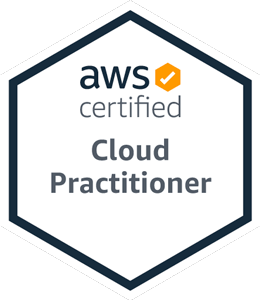
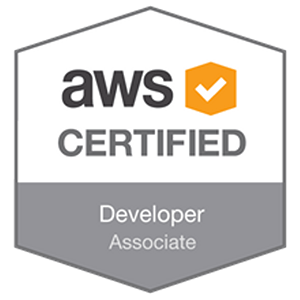
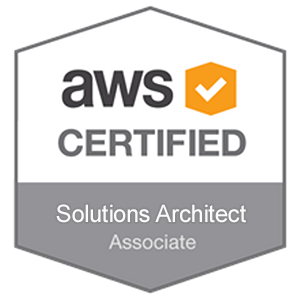
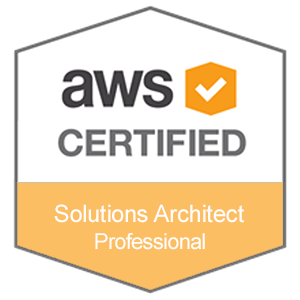
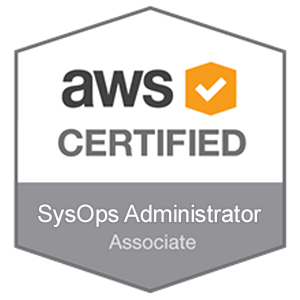
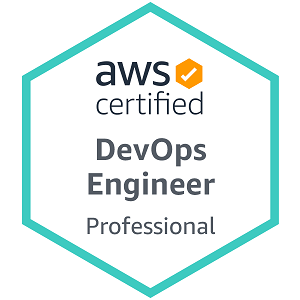



















Comments
Sonnet Jacob
Nov 11, 2025, 05:24 AM
Do you have branch in USA. Do you provide classroom training